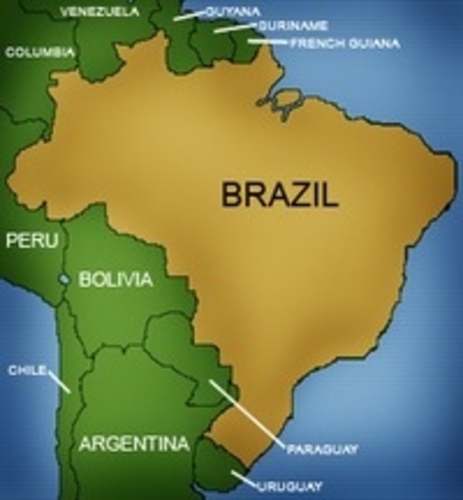
Last Friday, I gave a presentation on the BRICS in Global Order at the 3rd Regional Forum on International Relations at the Federal University of Santa Maria in Brazil’s South, close to the border with neighboring Uruguay and Argentina.
Interestingly, several students’ remarks reminded me of how different perspectives about international issues are according to the geographic location within Brazil. For example, one student asked me whether I thought Argentina should be included in the BRICS group (I answered that I’d rather pick Turkey or Indonesia). Another told me about his interest in Brazil’s ties to Paraguay. The coordinator of the university’s IR program said many students study trade relations with Argentina. Issues, in short, that matter to Southern Brazil, yet very different from the topics students may look at in other regions.
This ought not be surprising: Brazil is a continent-sized country, and regional priorities and points of views are bound to differ. The state of Rio Grande do Sul, which borders both Argentina and Uruguay, faces very different international challenges than the state of Acre, which shares a border with Peru and Bolivia, or Roraima, which borders Venezuela and Guyana.
Yet the institutions that are home to the bulk of Brazil’s International Relations community remain concentrated in the triangle of São Paulo, Rio de Janeiro and Brasília, and most academics rarely have a chance to engage with Brazilian thinkers located in other regions. While the South is better developed and boasts growing IR departments in places such as Porto Alegre and Florianópolis, very few IR scholars are based in the Northeast and North of Brazil, so this regional perspective is particularly underrepresented in debates about Brazil’s national interest.
This is all the more worrying because it is in the North where the most serious challenges lurk: Drug trafficking, for example, thrives along Brazil’s Western and Northwestern border because policing the Amazon is difficult, and governance structures in the area are weak as a consequence. More recently, the number of illegal immigrants (e.g. from Haiti) crossing into Brazil from Peru and Bolivia has increased (I commented on this topic in a recent post), yet very few of Brazil’s IR scholars are located in the area to provide the necessary context to the media’s frantic reports about a ‘Haitian invasion’.
Compared to the country’s growing importance, Brazil’s IR community remains disproportionately small, so many will argue that it is too early to spread out geographically. Rather, the existing departments need to obtain the critical mass to be able to turn into international voices. Still, debates such as the one in Santa Maria are a useful exercise to help São-Paulo or Rio de Janeiro-based academics such as myself appreciate the breath of regional perspectives that make up Brazil’s position in global affairs.
Read also:
Book review: “The New Brazil” by Riordan Roett
Brazil and the dilemma of regional leadership
Sign up here to receive the Postwesternworld newsletter








